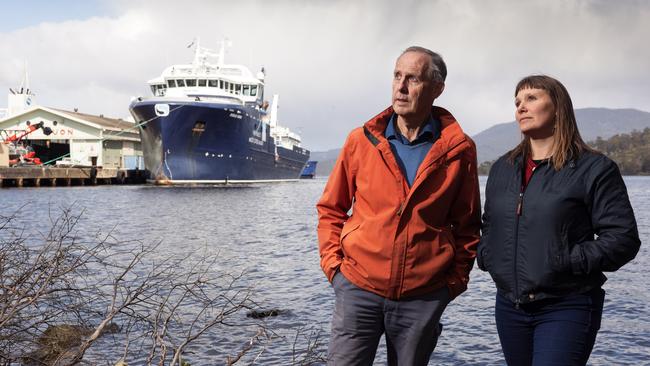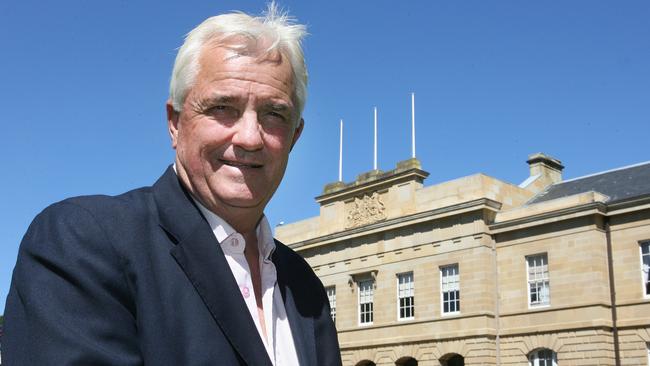Bob Brown appoints dedicated campaigner to fight Tassie’s ‘toxic salmon crisis’
Known for its direct action tactics, the Bob Brown Foundation says it will fight the expanding salmon industry after appointing a new campaign chief.
Tasmania
Don't miss out on the headlines from Tasmania. Followed categories will be added to My News.
THE environmental campaigners at the Bob Brown Foundation have turned their sights on the Tasmanian salmon industry.
The Foundation has expanded its remit from being solely land-based to ocean and coastal areas and has hired a dedicated campaigner to take the fight “to the markets, on the streets and out on the ocean”.
Ecologist, Country Womens’ Association branch president and volunteer firefighter Bec Howarth has been appointed as the Foundation’s Fish Farm and Marine Campaigner.
She says the community and the environment are both suffering from industrial salmon expansions.
“Our Foundation will be taking action to protect Tasmania’s oceans, coastlines, and riverine ecosystems. We will have a Seal Hotline, for people to report on Big Salmon and their devastating impacts on wildlife and the environment. We will be in the markets, on the streets, and out on the ocean rescuing the public commons off the corporations,” said said.
“Over 900 hectares of approved leases are allocated for fish farming already in Storm Bay.

Expansion in Storm Bay will place industrial polluting feedlots next to the much-loved Iron Pot lighthouse, the gateway to Hobart, spreading to Bruny Island and the Tasman Peninsula, less than 12km from globally famous Shipstern’s Bluff.
“These are our favourite surfing, fishing and sailing spots, and they’re Tasmania’s public waters.
The Bob Brown Foundation has been prominent in protest action in Tasmania’s wild areas: particularly against forestry and mining, particularly in the Tarkine area.
The Foundation has also been outspoken against federal government proposals for a massive concrete runway in Antarctica.
Ms Howarth said expanding into marine protection was a logical step.
“The ocean covers 71% of planet Earth and plays a crucial role in sustaining all life. However, overfishing, pollution, and climate emergency are placing ocean ecosystems under extreme stress,” she said.
“We are here to rescue the oceans, rivers, and coastline from the salmon barons.
“Here in Tasmania, the floating feedlots operated by the salmon barons have contaminated world heritage ecosystems like Macquarie Harbour, treasured local waterways in the Huon and D’Entrecasteaux. The pending destruction of Storm Bay and Tasmania’s northwest are next on their agenda.
“Our environment and local communities have suffered from immeasurable marine debris in our waters and along our beaches, algal blooms, rubbish, and seal abuse.
“We want outcomes that deliver protection for the marine environment including halting the mega expansion, reverse the greed-driven invasion of public commons with polluting factory feedlots and stop the killing of marine wildlife.
She said the foundation would build on its “a feisty, vigilant, and action-oriented reputation “to rescue Tasmania’s waters from the toxic salmon crisis”.

Tasmanian Salmonid Growers Association spokesman Julian Amos was the move was not surprising.
“This is just another iteration of what they’ve always been doing. They say they were going to put the industry on notice,” he said.
“The industry has been on notice forever: it runs under a very strict regulatory regime run by the government.”
He said land-based farming would not be feasible on the scale required and would have a greater cost in terms of the environmental and animal welfare impact.
The Tasmanian aquaculture industry continued to enjoy the confidence of the three top global certification bodies, he said.





